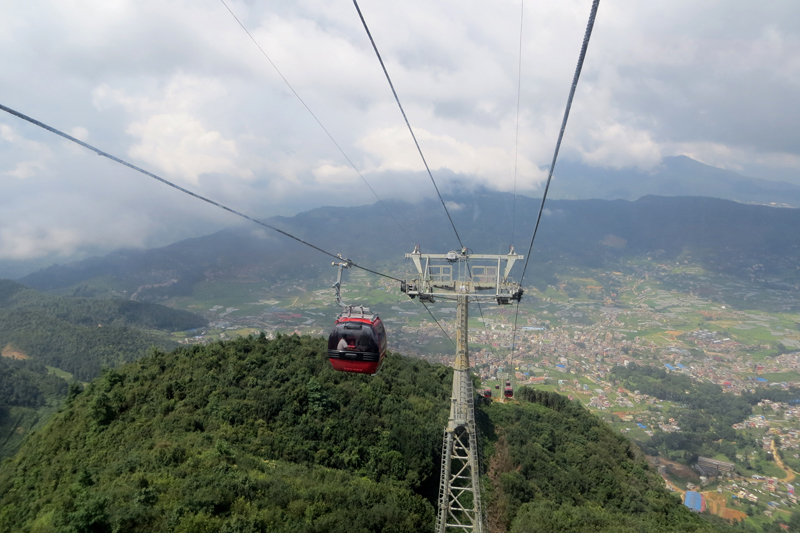Operation of cable car feasible in Valley
Kathmandu, May 23
A study has shown that the operation of cable car is feasible at three different locations of Kathmandu Valley.
The engineering study was carried out by two French companies - ADP and Ciastra, which are famous the world over for cable car construction, installation and operation - in collaboration with Panchakanya Group and Kalika Construction of Nepal. The study has estimated it would cost a total of Rs 15 billion to build cable car system.
The government of France handed over the feasibility study report of the Kathmandu Valley Cable Car Project to the Ministry of Physical Infrastructure and Transport (MoPIT), today. The feasibility study cost Rs 34 million, which was provided by the French government as part of its bilateral cooperation and it took five years for the feasibility study to be completed.
Ambassador of France to Nepal, Yves Carmona, handed over the feasibility study report to Minister for Physical Infrastructure and Transport, Raghuveer Mahaseth, at a function attended by the members of the study team, representatives of the Nepali construction companies and a French delegation.
One of the planned routes is through the Blueline Cable Car Service that will start from Bishnumati and reach up to Boudhanath via Hanumandhoka Durbar Square area, Ratna Park, Dilli Bazar, Bhandarkhal and Chabahil. Nepali passengers will have to pay a fare of Rs 40 per person from whichever station they board the cable car and travel to whichever destination along the route. The fare for foreigners has been set at Rs 150, as per the study.
The other routes planned under the cable car service are Gongabu-Balaju-Sohrakhutte-Kalimati-Balkhu-Tribhuvan University; the Kalanki-Teku-Thapathali-Ratna Park and the Lagankhel-Pulchowk-Thapathali-Ratna Park sectors.
The feasibility study conducted with the cooperation of the French government shows that it is possible to operate a cable car transport service in Kathmandu Valley, the country's federal capital with a population of about four million, as a way of reducing the burgeoning traffic congestion.
Following the handover of the study, the MoPIT has said that it will develop a policy or guidelines for developing cable car as mode of urban transport. Till date there is no policy of the government regarding licensing of cable car, according to Madhusudan Adhikari, secretary of MoPIT. “Earlier, the permission for the installation and operation of cable car service was given based on the proposals presented by the concerned ministries to the Cabinet.”
After the feasibility study, the government has to make a decision to move ahead for detailed project report (DPR) but due to lack of policy on licensing of cable car as urban infrastructure and the unbundling of authority between the federal and sub-national governments, the government has to develop policy or guidelines for the licensing process, according to Adhikari.
It is reported that the metropolitan city has an equally important role in the implementation of this project as it is the government's responsibility to acquire land for the cable car station and other related infrastructure. Adhikari mentioned about the private sector's determination to construct the project if government provides support to it.
Secretaries of MoPIT, Ministry of Federal Affairs and General Administration and Ministry of Culture, Tourism and Civil Aviation have held discussions on developing a policy or guidelines for cable car operation as mode of transport, as per MoPIT officials.






